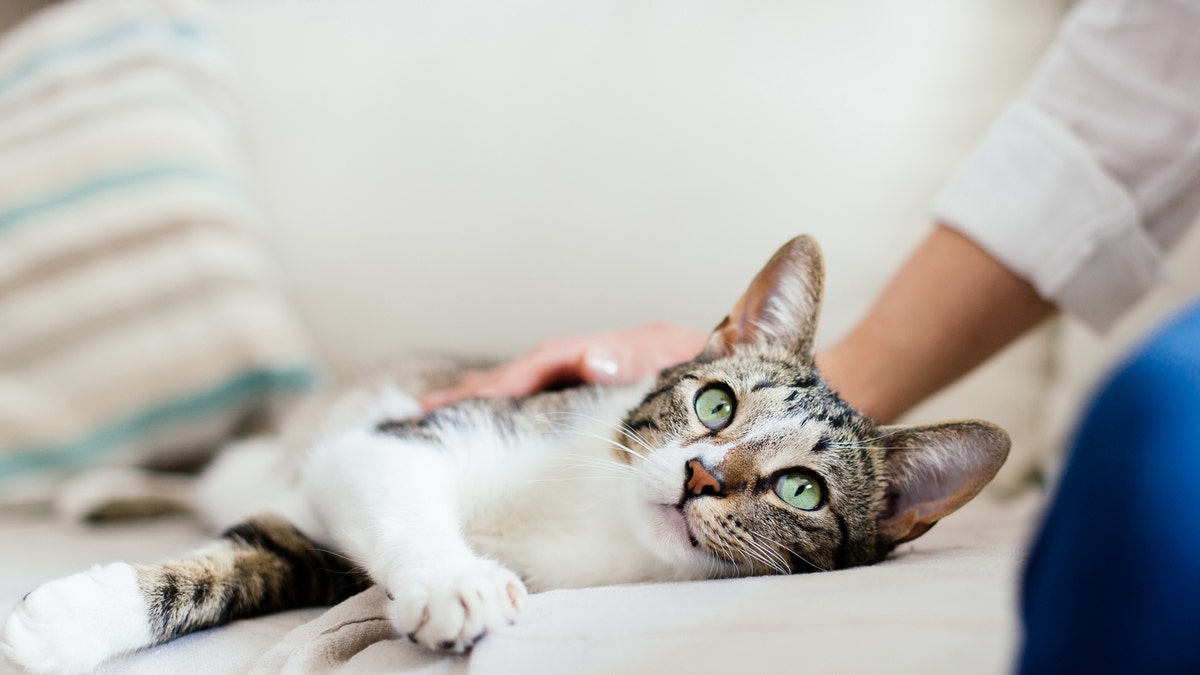Coronavirus can infect cats, study finds
A new study finds that humans aren't the only ones susceptible to COVID-19 infections. Ferrets and cats can also catch the deadly virus.
Get all the latest news on coronavirus and more delivered daily to your inbox. Sign up here.
Heads up, cat lovers: Your feline friend may be susceptible to the novel coronavirus after all.
A new study conducted by researchers in China found that SARS-CoV-2, the virus that causes a COVID-19 infection, does not appear to infect dogs, pigs, chickens, and ducks, but can infect ferrets and cats. And not unlike humans, cats can likely catch the virus via respiratory droplets.
POSSIBLE CORONAVIRUS TREATMENT LEAVES LUPUS PATIENTS WITH NEW CHALLENGES: 'THERE ARE BACKORDERS'
For the study — which was aimed at finding animals susceptible to the virus so they can be used in testing potential coronavirus vaccines, according to Reuters — researchers infected dogs, pigs, chickens, ducks, ferrets and cats with a high dose of SARS-CoV-2.
In cats, the virus was detected in the felines’ noses, mouths and small intestines. The researchers also tested kittens, concluding that they, too, are susceptible to the virus, discovering what they described as “massive lesions” in their noses, throats and lungs.
“These results indicate that SARS-CoV-2 can replicate efficiently in cats, with younger cats being more permissive and, perhaps more importantly, the virus can transmit between cats via respiratory droplets,” they wrote.

Cats can be infected with the novel virus, the researchers found. (iStock)
In ferrets, the researchers detected the virus in the animals’ nasal passageways, soft palate, and tonsils, but did not detect the virus in any other organs, indicating that the virus “can replicate in the upper respiratory tract of ferrets, but its replication in other organs is undetectable,” the researchers said.
SARS-CoV-2, which first emerged in Wuhan, China, in December, likely originated in bats before spreading to humans, though a study from March suggests that bats may have spread the virus to another animal, possibly a pangolin, which then transmitted it to humans.
As of now, there is limited evidence that suggests pets can spread the virus to humans. But the results from the study prompted the World Health Organization (WHO) and its partners to “look more closely at the role of pets in the health crisis,” Reuters reported.
MICHIGAN NURSE DEMONSTRATES CORONAVIRUS SPREAD USING GLOVES IN VIRAL VIDEO
"We don’t believe that they are playing a role in transmission but we think that they may be able to be infected from an infected person,” WHO epidemiologist Maria Van Kerkhove said during a Wednesday news conference, as per the outlet.
The news comes after a tiger at the Bronx Zoo, in New York City, tested positive for the coronavirus after likely being exposed to it by an infected worker. And earlier this week, the British Veterinary Association, expressing concerns that the virus could be found on cats' fur, encouraged pet owners to keep their felines indoors, if possible, in an effort to stop the spread of the novel virus.
